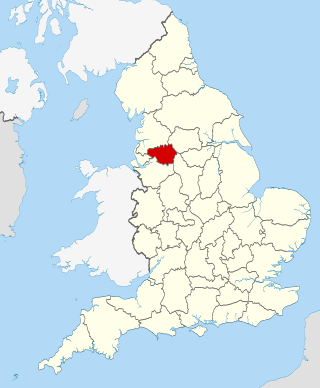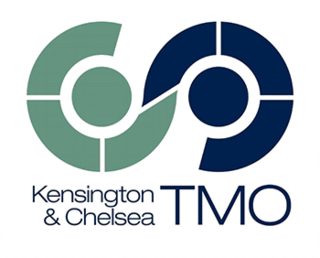Related Research Articles
Under U.S. law, a conservatorship results from the appointment of a guardian or a protector by a judge to manage the personal or financial affairs of another person who is incapable of fully managing their own affairs due to age or physical or mental limitations. A person under conservatorship is a "conservatee", a term that can refer to an adult. A person under guardianship is a "ward", a term that can also refer to a minor child. Conservatorship may also apply to corporations and organizations.

Trustee is a legal term which, in its broadest sense, is a synonym for anyone in a position of trust and so can refer to any individual who holds property, authority, or a position of trust or responsibility for the benefit of another. A trustee can also be a person who is allowed to do certain tasks but not able to gain income. Although in the strictest sense of the term a trustee is the holder of property on behalf of a beneficiary, the more expansive sense encompasses persons who serve, for example, on the board of trustees of an institution that operates for a charity, for the benefit of the general public, or a person in the local government.

The Department for Work and Pensions (DWP) is a ministerial department of the Government of the United Kingdom. It is responsible for welfare, pensions and child maintenance policy. As the UK's biggest public service department it administers the State Pension and a range of working age, disability and ill health benefits to around 20 million claimants and customers. It is the second largest governmental department in terms of employees, and the second largest in terms of expenditure.
A tenant management organisations (TMO) is an organisation set up under the UK Government's Housing Regulations 1994, which allow residents of council housing or housing association homes in the UK to take over responsibility for the running of their homes.

Jobcentre Plus is a brand used by the Department for Work and Pensions in the United Kingdom.
A trust company is a corporation that acts as a fiduciary, trustee or agent of trusts and agencies. A professional trust company may be independently owned or owned by, for example, a bank or a law firm, and which specializes in being a trustee of various kinds of trusts.
Benefit fraud is a form of welfare fraud as found within the system of government benefits paid to individuals by the welfare state in the United Kingdom.
Housing Benefit is a means-tested social security benefit in the United Kingdom that is intended to help meet housing costs for rented accommodation. It is the second biggest item in the Department for Work and Pensions' budget after the state pension, totalling £23.8 billion in 2013–14.

The Association of Greater Manchester Authorities was the local government association for Greater Manchester, a metropolitan county in North West England. Its creation followed the abolition of the Greater Manchester County Council, being established in 1986 as a governmental organisation to represent the ten district councils of Greater Manchester. AGMA was later superseded by the Greater Manchester Combined Authority, the first authority of this new type in the United Kingdom, on 1 April 2011.
Appointee may refer to:

The Financial Reporting Council (FRC) is an independent regulator in the UK and Ireland based in London Wall in the City of London, responsible for regulating auditors, accountants and actuaries, and setting the UK's Corporate Governance and Stewardship Codes. The FRC seeks to promote transparency and integrity in business by aiming its work at investors and others who rely on company reports, audits and high-quality risk management.

In domestic and international commercial law, a beneficial owner is a natural person or persons who ultimately owns or controls an interest in a legal entity or arrangement, such as a company, a trust, or a foundation. Legal owners, commonly described as the "registered owners", may hold those interests as beneficial owners or for the benefit of someone else, in which case they may be described as a "nominee".
The following outline is provided as an overview of and topical guide to business management:

Paul Richard Charles Gray, is a British former civil servant who was chairman of HM Revenue & Customs until he resigned on 20 November 2007.
Corporate services or business services are activities which combine or consolidate certain enterprise-wide needed support services, provided based on specialized knowledge, best practices, and technology to serve internal customers and business partners. The term corporate services providers (CSPs) is also used.

The Greater Manchester Combined Authority (GMCA) is a combined authority for Greater Manchester, England. It was established on 1 April 2011 and consists of 11 members; 10 indirectly elected members, each a directly elected councillor from one of the ten metropolitan boroughs that comprise Greater Manchester, together with the directly elected Mayor of Greater Manchester. The authority derives most of its powers from the Local Government Act 2000 and Local Democracy, Economic Development and Construction Act 2009, and replaced a range of single-purpose joint boards and quangos to provide a formal administrative authority for Greater Manchester for the first time since the abolition of Greater Manchester County Council in 1986.

Kensington and Chelsea TMO (KCTMO) was the largest tenant management organisation (TMO) in England, managing nearly 10,000 properties on behalf of Kensington and Chelsea London Borough Council – the entire council housing stock in the Royal Borough of Kensington and Chelsea.
JPMorgan Chase is an American multinational banking corporation with a large presence in the United Kingdom. The corporation's European subsidiaries J.P. Morgan Europe Limited, J.P. Morgan International Bank Limited and J.P. Morgan Securities plc are headquartered in London.

Tri-borough is a project between three councils in west London, England to combine service provision. The councils are Westminster City Council, Hammersmith and Fulham London Borough Council and the Kensington and Chelsea London Borough Council. It launched in June 2011 and is due to come to an end in April 2018
References
- 1 2 3 "Managing someone else's finances: Corporate appointee". Wigan Council. n.d. Retrieved 2 February 2024.
- ↑ "Appointeeship Procedures". London Borough of Barking and Dagenham. n.d. Retrieved 2 February 2024.
- ↑ "Get support with managing your money". Walsall Council. n.d. Retrieved 2 February 2024.